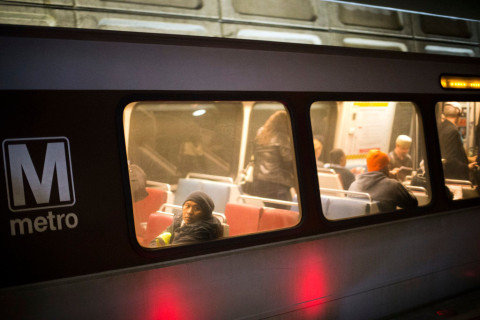WASHINGTON — As Metro moves closer to major service cuts that could make midnight closings permanent on Fridays and Saturdays or include more dramatic shifts in hours, the details on potential alternatives for people who rely on the system to get home — or go out on the town — are unclear.
Metro planners are working on at least three different bus service options that could provide some riders with a way home without paying for more expensive rides, Metro Assistant General Manager for customer service Lynn Bowersox said Thursday.
“What I would expect you to see is sort of low, medium and high bus service options that have different routes, different layers of coverage based on ridership, based on demand, that would have different cost implications associated with them,” she said.
Metro Board Chairman D.C. Councilmember Jack Evans has also asked for an analysis of the costs of running buses from station to station across the rail system.
“What I’m talking about is — say everybody comes back and says we want to close at 1 o’clock or 2 o’clock — to have buses run along the exact place where the Metrorail would run, but I want that study done: all the information, the costs before the public hearing,” he told reporters.
Introducing the four options that will be the basis of discussion at the public hearing, Bowersox said the goals of the proposals are increasing time for safety work, limiting the numbers of riders impacted by the changes, and practicing “fiscal prudence.”
The public hearing is expected mid-October, after a Metro Board committee signed off this week. The full board is expected to approve the public hearing later this month.
Instead of bus service, Maryland Metro Board member Michael Goldman suggested Metro could establish some kind of partnership with Uber, Lyft or a similar company.
“Maybe we don’t have to always rely on Metro in-house to solve our own problems. It may be that our objective, I think, should be getting these people home late at night, or where they want to go and not necessarily figuring out whether we can do it on Metro,” Goldman said.
It is not clear those companies would need the partnership, since use of ride-hailing services has been increasing, but in other parts of the country, some of the services have been subsidized by transportation agencies looking to provide additional service.
D.C. Metro Board member Tom Bulger expressed serious concern about the impact on vulnerable communities.
“What I’m interested in are the workers who service our economy in the city of Washington, D.C., who have to get home and don’t have another car, and they will not have any other way of getting from, let’s say, a restaurant or hotel to home,” he told Bowersox.
“We would put a bus option out there that would hopefully respond to at least most of those needs,” Bowersox said.







